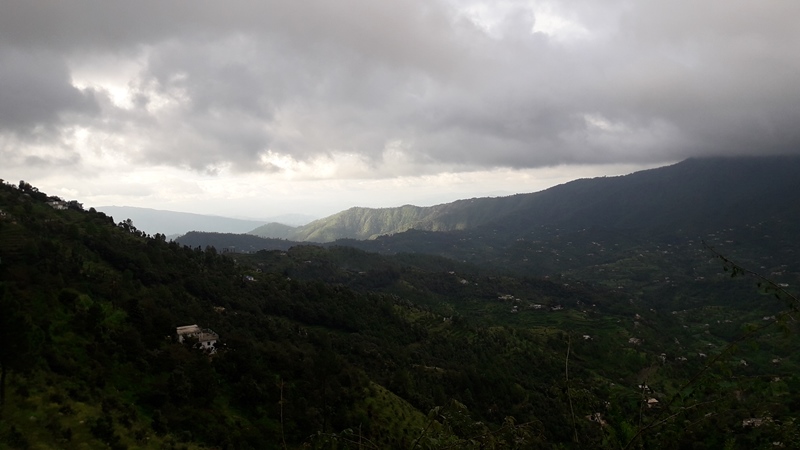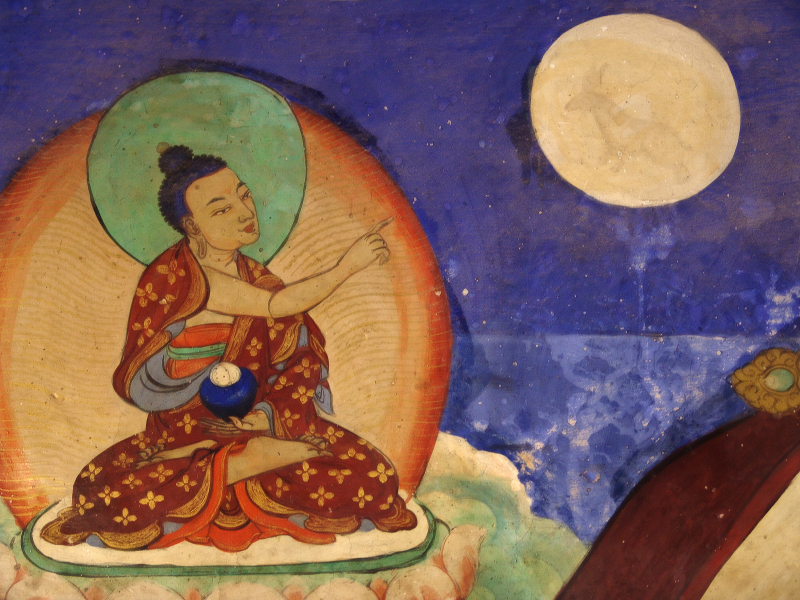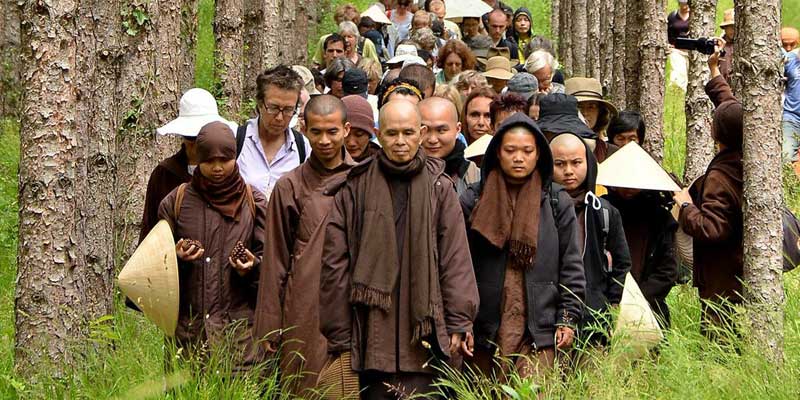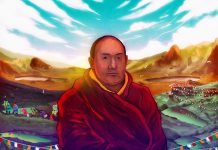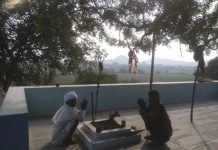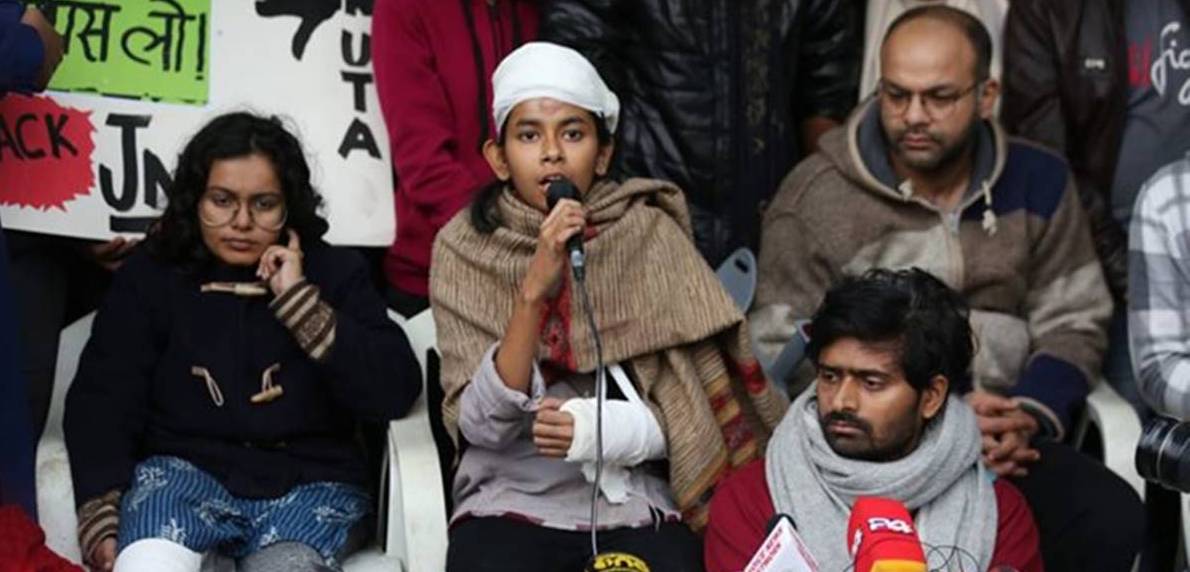What is the meaning of a journey? Is it merely a physical journey–moving around, seeing new places, and discovering unknown territories or the esoteric landscape? Or is it that the journey is always integral outer as well as inner, and physical as well as psychic/spiritual? Every time I have come out of my solitary cell, undertaken a journey, walked through mountains and valleys, seen the woods and the sea, met new people , and looked at the highways, airports and railway stations, I have felt that my outer journey is never separated from the inner journey I am undertaking simultaneously. Yes, to me, my journey is my book, my philosophy, my quest–beyond merely the excitement of ‘food bonanza’, or Facebook ‘shares’.
It is in this context that I feel tempted to share the story of one of my recent journeys.
Light and darkness amid the uncertainty all around
We thought that we would start at 4.30 am in the early morning, and move towards Mukteshwar – a beautiful Himalayan hamlet in Uttarakhand. Yes, we were ready. The driver of the car we hired knocked the door. But then, suddenly, we saw the emergence of the monsoon clouds, the vibrations of the storm, lightning, and heavy showers. Possibly, as we thought, it would not be save to start the journey amid these intense rains. Our faith in the clock time, our modernist planning and time schedule, and our ‘agency’ – everything became futile ; and I realized once again the possibility of uncertainty in life. Yes, for me, it was a moment of humility.
THE REPUBLIC OF THE CLOUDS, THE MYSTERY OF THE AMAZING MOUNTAINS AT DIFFERENT MOMENTS, THE PLAY OF THE SUN, THE RAINS, LIGHT AND DARKNESS, AND THE BEAUTY OF THE CLOUDS EMBRACING THE MOUNTAIN PEAKS (WHAT A BLEND OF THE FEMININE AND THE MASCULINE) – I SURRENDERED. WAS I MERGING WITH THE PLAY OF CREATION – THE WAY A CHILD WOULD MERGE WITH HER MOTHER?
But then, eventually, the rains stopped. We started the journey at about 5.30 am. But see the totality of life. After the rains, the sky was becoming clear; and this time from the running car, I happened to see the red sun. Yes, I saw it, even though at that time, we were passing through the zone where, as the real estate promoters would say, we should book our flats in the gorgeous skyscrapers – yet another symbol of the ‘vitality’ of capitalism, its spectacle of engineering, and its urge to ‘conquer’ the space. The sky was amazing; the sun was illuminating; and I felt: ‘I am not merely a child of modernity. I am integrally related to everything–the monsoon clouds or the warmth of the sun. I cannot be confined merely to the logic of the 1500 sq ft apartment in a gated community’.
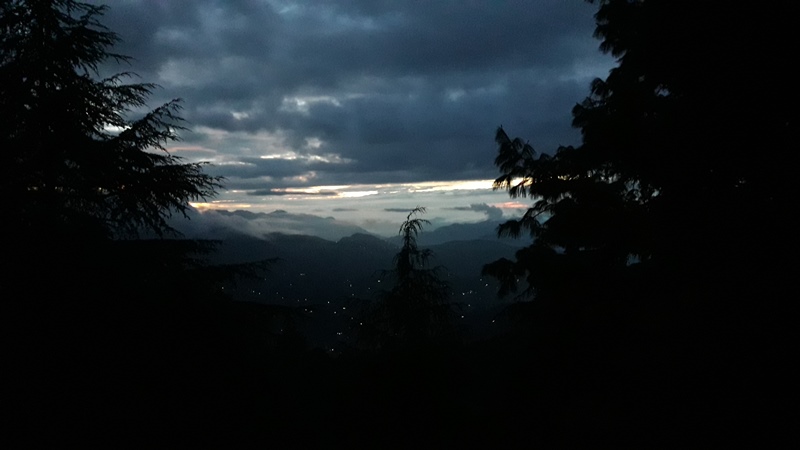
The movement has its beauty and thrill: highways, expanded sky, agricultural land, roadside dhaba, a cup of tea, washroom, and the FM channel that inspires the driver…But then, there is nothing one can take for granted. This time the car stopped; all the vehicles stopped; there was inexplicable traffic jam. Nothing was moving.There was utter chaos; and eventually, we were losing patience. Time passed; there was no hope even after an hour. Amid this boredom or tiredness, I could see the patience of the driver – his clamness; possibly, the road has taught him these important lessons of life. Not everything can be planned and predicted; one must learn to wait, and face the challenges. I too began to realize its importance. Is it the lesson of meditative calmness even amid the utter chaos?
Well, almost after two hours, there was movement once again.
Ways of seeing and tourism as consumption
Even though we seek to arrive at a destination, the journey itself is a process of becoming. The journey has its ups and downs, moments of pain and hope, and suffering and ecstasy. It was a long drive; some were exhausted, and physically tired. Yet, as we reached the Kumaon zone of Uttarakhand, the curved path and the surrounding peaks and valleys began to speak in many voices. The landscape was extraordinarily green; the air, unlike what we breathe in Delhi, was refreshingly soothing; and the gestures and movements of the local people radiated the rhythm of what ‘speedy’ modernists would regard as ‘slowness’. My eyes were open; my ears began to receive the language of silence; and my heart began to silence the the assertion of prosaic ‘logic’. It was poetry and music all around. It was not difficult to transcend the pain of the body: occasional nausea and stomach churning.
Finally, we arrived. It was a beautiful guest house – simple and lyrical, and modest and life-affirming. Now I began to experience the ecstasy of tremendous positive energy. With deep peace, inner contentment and gratitude, I began to see…. For me, there was no tourism ‘guide book’ – no instructed visit to select ‘spots’. For me, everything was worth-seeing. Every fold of the mountain began to whisper in my ears; every pine tree conveyed its prayers. The republic of the clouds, the mystery of the amazing mountains at different moments, the play of the sun, the rains, light and darkness, and the beauty of the clouds embracing the mountain peaks (what a blend of the feminine and the masculine) – I surrendered. Was I merging with the play of creation – the way a child would merge with her mother? I walked. I sat. I felt. No, I was not in a hurry. There was nothing to be possessed and conquered; there was nothing to be ‘covered’ and written in my bio-data. There was only the ecstasy of surrender– the depths of silence, and the intensity of mindfulness.
I found everything. I saw Yajnavalkya conversing with Maitreyi; I saw Tagrore composing his music; I felt the presence of Rumi and Wordsworth; Bhimsen Joshi and Bismilla Khan were there; and yes, there was a metamorphosis–from restlessness to calmness, from utility to beauty, and from noise to silence.
But then, I also witnessed something that disturbed me. Yes, in the age of consumption, tourism as an industry seems to have corrupted us, and destroyed our ways of seeing. We are in a hurry; and we are restless; with technological gadgets and debit cards we seek to grab everything: from fast food to a sunset. And in the age of instantaneity, the obsessive urge to transform everything into a Facebook ‘visual’ has caused a high degree of psychic pollution. I saw the tourists of this kind; they looked like conquerors; and with noise, burden of wealth, and restlessness, they, I feared, missed a communion with the aesthetics of the divine. Amid loud music, the smell of fast food and the ‘selfie’ episode, they missed the sacred moment–the union of the inner and the outer, life and death, and the phenomenal and the transcendental.
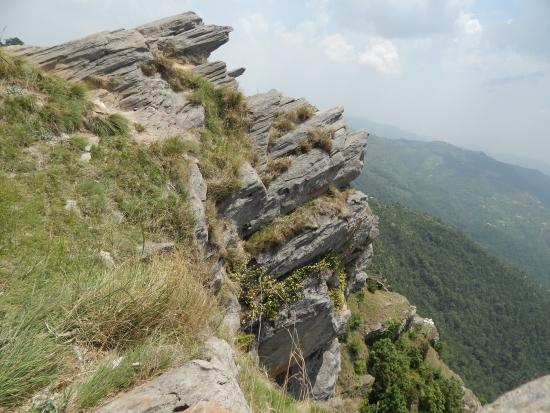
A tiny blue flower and the songs of the unknown
Was the tiny blue flower talking to me? Even on the solid rock of the mountain it was dancing; it was in tune with the entire play of the cosmos. It would be there for some time; and then, it would vanish–the way we come and disappear. It was just doing its swadharma–radiating, smiling and dancing. It was not conscious whether people were watching, taking a photograph, and talking about it. Suddenly, amid the intense silence of the mountain path, I felt the tiny flower’s ability to exist–and exist beautifully–without self-advertisement. The lesson was therapeutic. Because in our times characterized by the politics of CVs , we love to promote ourselves. We no longer feel ashamed of self-advertisement. We die for recognition, our presence on the TV screen, and the ‘likes’ for our Twitter/Facebook statements.
And then, I began to think of the cook in the Guest House. At the altitude of 7500 ft, he made it possible. Rains or snow fall, shivering cold or cloud burst–we would get beautiful breakfast and dinner. No, money could not measure the worth of this service. He was shy, silent and inner-directed. Seldom did the tourists bother to know about him, to say ‘hello’ to him, or to express their gratitude. But then, like the tiny blue flower, he was not complaining; he was just doing his work–it was his religiosity. He made me humble; he made me realize the superficiality of my ‘ego’–my position, my salary, my fame, my recognition, my property. Likewise, I think of the young boy who would never miss to serve; exactly at 6.45 am, he would knock your door, and serve you bed tea. The money he earns is not sufficient. Yet, his rhythm, his sincerity, and his constant work with a high degree of regularity amid the continual flux of the tourists were amazing. Possibly, he didn’t read the Bhagavadgita. However, in his work I felt the spirit of detachment. As tourists, we come and go; we hardly bother to know about him–his child, his wife and his old mother living in yet another remote village in Uttarakhand. He would not be seen in the album of the pictures we would take, and show it to our ‘educated’ friends and colleagues. He , for us, was insignificant. Yet, he too was like the tiny blue flower….
Yes, I too came back. The ‘practical’ existence – job, salary, insurance premium, mediclaim, social networking, bank balance – is trying its best to make me ‘worldly’. Yet, the poetry of the journey refuses to disappear. I feel like reading this beautiful book time and again.
Avijit Pathak is a Professor at the Centre for the Study of Social Systems, Jawaharlal Nehru University, New Delhi.

